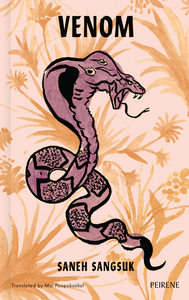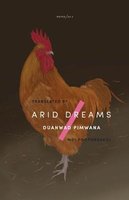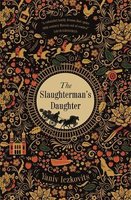Peirene Press were one of the first small publishers of translated fiction to emerge at the same time as I was beginning to pay attention to the subject, which is one reason I’ve always tried to keep up with their catalogue. Another reason is that they publish some really good books. Today’s post is all about their first two titles of 2023.
History. A Mess. by Sigrún Pálsdóttir
Translated from Icelandic by Lytton Smith
It begins with an innocuous detail that could change everything. A PhD student in Oxford is studying the diary of one S.B., whom her supervisor believes was Britain’s first professional artist. It’s mostly mundane stuff, but then one passage seems to indicate that S.B. was a woman. On the way home, the protagonist is already daydreaming about the thesis she’ll publish about this revelation.
Then we move forward in time, and the protagonist has returned to Reykjavík. Her life is far from what she imagined back in Oxford – she hasn’t finished her thesis, and spends most of her time at home. It becomes apparent that, later in her studies, she had found another page in S.B.’s diary that disproved her theory, and that discovery has taken its toll.
The account that follows is not only fragmented and out of chronological order – it also collapses into conjecture. Just as the protagonist couldn’t get to the ultimate truth of S.B.’s identity, so the protagonist is lost to us in a maze of realities. Subjectivity all the way down, that’s what animates this novel.
Venom by Saneh Sangsuk
Translated from Thai by Mui Poopoksakul
This year, as well as their usual three novellas, Peirene are publishing two books by the Thai writer Saneh Sangsuk. In Venom, the village of Praeknamdang is lorded over by Song Waad, who has convinced the villagers he is a medium connected to their Patron Goddess.
Only one small family regard Song Waad as a fake, which makes him their enemy. The boy of the family lost the use of one arm in an accident: Song Waad took the opportunity to paint this as the Goddess’ displeasure, with some of the villagers accepting his word.
In the present, the boy finds himself in a life-and-death predicament when he is attacked by a king cobra, which he manages to grab before it can bite him. For most of the rest of this short book, the boy is trying to keep the cobra at bay while making his way back to the village for help.
The story of the boy’s struggle with the snake is compelling in its own right, but it’s also embedded in the broader struggle against oppressive authority (which Song Waad represents). So Venom paints a large portrait on a relatively small canvas.





Recent Comments